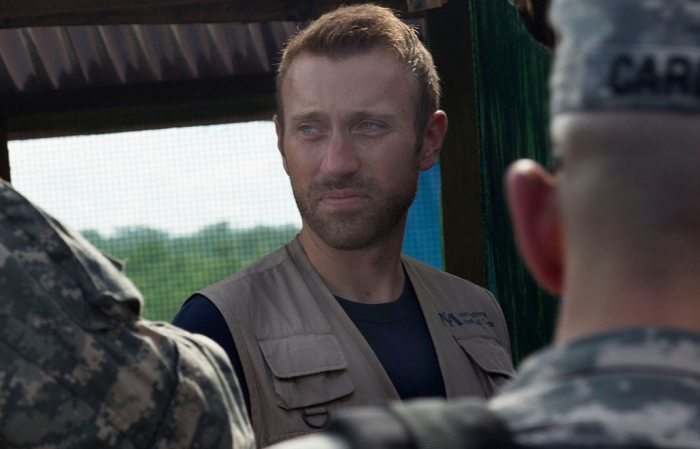UCT alumnus “humanitarian hero of the year”
12 May 2016 | Story by Newsroom
Sean Casey, who has an MPhil in HIV/AIDS and Society from UCT, has worked in the public health sector in over 30 countries. Late last year, thousands of his peers in the humanitarian aid and development sector voted him AIDEX Humanitarian Hero of the Year.
American-born Casey was a first responder during the Ebola outbreak in West Africa and after the earthquake in Nepal (2015). He has also worked in the Ukraine (2014), the Philippines (2013/2014), Mali (2013), South Sudan (2012) and Haiti (2011/2012).
In addition to this, he has supported survivors of torture in Iraq, helped with child soldier reintegration in Sri Lanka and the Democratic Republic of the Congo, and has been involved in sexual minority protection initiatives in Syria, Nigeria and Pakistan.
Casey is based in Bangkok, Thailand, where he currently holds the position of senior global operations advisor for International Medical Corps.
Cape Town calling
His relationship with UCT developed out of an exchange agreement with the American University of Paris where he was an undergraduate. He decided to spend a semester abroad in Cape Town during his third year of study.
While at UCT, he volunteered with SHAWCO in Khayelitsha and travelled extensively in southern Africa. This led to him enrolling for an MPhil in HIV/AIDS at UCT – he graduated in 2006.
“Collectively, these experiences and opportunities put me on my career trajectory, giving me the skills and training to do my work, as well as exposure to many different cultures and ways of thinking,” he said in a recent interview.
Casey said he grew up in a family that was “very service-oriented” and both he and his sister (a nurse) ended up working in “helping” professions.
“I suppose I'm most driven in my work by the principle that we can and must do better for people, for each other. We should have a sense of collective responsibility to reduce suffering and increase opportunities, and that's what inspires my work in this field,” he said in an interview with Humanities News.
Photo International Medical Corps.
 This work is licensed under a Creative Commons Attribution-NoDerivatives 4.0 International License.
This work is licensed under a Creative Commons Attribution-NoDerivatives 4.0 International License.
Please view the republishing articles page for more information.










